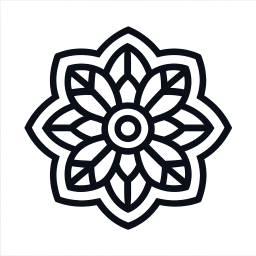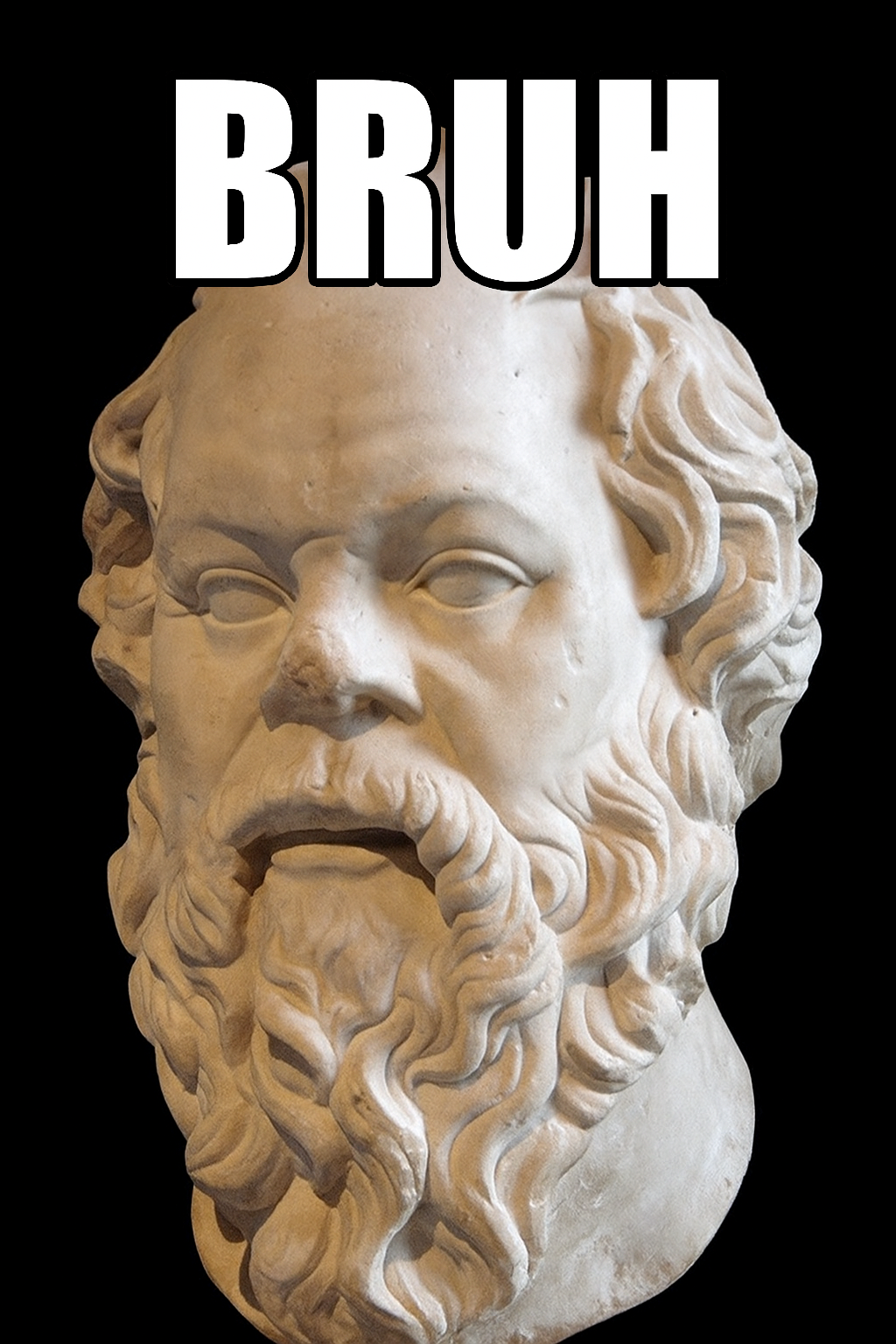Ah, Plato. The philosopher everyone points to when they want to sound like they’ve read a book. The guy with the perfect public image, so polished you could mistake him for an ancient Greek influencer.
I mean, he’s the one everyone quotes, right? I’ll leave my favourite one here.
“The untrained mind keeps up a running commentary, labelling everything, judging everything. Best to ignore that commentary. Don’t argue or resist, just ignore. Deprived of attention and interest, this voice gets quieter and quieter and eventually just shuts up.”
Although I do not really agree that ignoring is the way to go. The idea of it still points to the multiplicity of the mind, yet portrays it as having some annoying idiot yapping in there constantly. Educate the idiot.
But, you know, considering his sensei got killed for embracing the voice, perhaps it is indeed wiser to change course from a survival perspective.
That he strived to be and think of ideals. And it makes sense. He definitely tried embody those ideals.
Let’s not kid ourselves —
Plato was the kind of guy who’d interrupt your shroom trip to give you a TED talk on epistemology.
Yeah, sure, it sounds great, but I’m throwing up in the bushes, bro.
Where’s the raw, unfiltered wisdom that actually shakes you awake? Oh right, he was killed.
Socrates
Enter Socrates, Plato’s unkempt, messy teacher who couldn’t care less about writing down his ideas, but made people question everything —
including their own goddamn existence.
Socrates wasn’t trying to win the argument.
He was trying to show you that you were a walking contradiction,
and didn’t need fancy words for the sake of it.
He just tried to get you to realize how full of shit you were.
That’s real gigachad energy, my friends.
The Socratic method? Goddamn. Ever tried doing it on yourself?
No wonder Plato was so fucking polished. He managed to get Socrates’ insights without having to walk the journey.
Socrates mainly saw the contradiction in himself, and saw his inner dialogue as a way to understanding it, and tried to embody self-dialogue when talking to others. Notably, he was executed for this, because people began to think for themselves, so he was labelled as a “corruptor of the youth” and a heretic.
His heresy? The daimonion. An “inner voice” as divinity. Very interesting. Definitely won’t show up again.
Not to mention his attempts at getting people to realise how full of shit they were resulted in exposing how full of shit the people in charge were.
Yeah. I wonder if things are any different these days?
We probably would have never had the works of Plato that receive so much acclaim for the polish and metaphysics they bring, and Aristotle would have been a completely different beast alltogether.
“The unexamined life is not worth living.”
Diogenes
Diogenes didn’t need to win you over with philosophy.
Instead, he won you over by peeing on your walls,
living in a barrel, and giving zero fucks about anything except his own brand of savage, unapologetic truth.
He didn’t even have a school. He was his school. Now that’s the sort of chaotic genius that really deserves the title of a “gigachad” because he wasn’t just a troll.
He had a radical existential point about autonomy, sham virtue (more about that one with Stoicism) and the absurdity of social constructs. We’ll see this approach pop out on the other side of the globe some 1700 years later down the line.
Diogenes, sure, was a master troll. But he did it for a reason, which can be summarized with one word: cynicism.
Not Just an Edgy Troll
To put it plainly, the idea of cynicism is that people act purely out of self-interest. That’s his whole pissing and jerking off in the street message. His appalling behavior, which caused such an uproar, was itself a performance of pure self-interest.
Paradoxically, this also highlights his own self-interest in bringing out self-interest. Interesting.
Plato’s like, “Imagine a utopia ruled by philosopher-kings.”
Diogenes: “Imagine shutting the fuck up.”
Plato: “We can’t see out of this cave.”
Meanwhile, Socrates is out here making dudes cry in public, and Diogenes is busy flipping off Alexander the Great from a wine barrel.
One was philosophizing about soul-harmony like he was scoring a wellness retreat in Mykonos, the others were basically philosophical punk.
“I have nothing to ask but that you would remove to the other side, that you may not, by intercepting the sunshine, take from me what you cannot give.”
But, sure, let’s keep pretending Plato is the ultimate OG philosopher —
after all, it’s not like we’re being fed a carefully curated version of him by the very people who wanted to write down everything he said, right?
The Triad
Underneath all this barrel-flipping sarcasm, there’s a real point.
Socratic dialogue is like proto introspection.
If you can be like Diogenes, flipping off great rulers for blocking your sunlight while doing a low cost turtle cosplay with a wine barrel, you’ve done everything right.
Plato’s trauma was losing Socrates. That’s why everything is polished.
If Plato would have had his dialogues with Socrates instead of having to emulate them, maybe philosophy would have been a lot less about “great systems” and a lot more about living dialogues and actual personal transformation.
His entire works post Socrates is pretty much a lament.
A monument — the attempt of one brilliant mind to build a system out of the ashes of his mentor, after watching honest dialogue get silenced by power.
Fuck.
And it made him fear democracy because he saw it devolving into tyranny. Hah, sound familiar?
What does the world look like when it worships Plato?
Probably bureaucracies and five-year plans.
What about Socrates?
Endless questioning, maybe even paralysis.
Diogenes?
Chaos, but piercing insight.
Plato is who we would want to be seen as,
Socrates becomes us when we realise that we, in fact, are not like Plato,
and Diogenes grabs the lantern when we seek honesty in ourselves.
Maybe we need more of the messy, chaotic thinkers who force us into uncomfortable realizations than the ones who draft blueprint after blueprint for how the world should be. Maybe.
Afterall, they’re the ones who produce the polished without ever being polished themselves.
And what if the real philosopher-gigachad isn’t even a person at all,
but the dance between these archetypes?
Plato trying to order meaning,
Socrates questioning it,
and Diogenes smashing the frame.
Maybe philosophy doesn’t need kings or barrels,
but a rhythm between them —
order, disruption as self-revelation,
and transgression with clarity as a recursive loop of becoming.
My Take on the Republic
The Republic isn’t just a book about the perfect city. It’s a book written by someone traumatized by the murder of his mentor, desperately trying to imagine a world where that kind of thing couldn’t happen again.
It’s Plato constructing a society where the wild, disruptive, and dangerous questioning that got Socrates killed is either ritualized, contained, or only safe for philosopher-kings.
All of The Republic is written as a dialogue with Socrates as the main character. Plato literally resurrects his dead mentor, like a ghost, haunting his own philosophical city.
Sometimes with breathtaking idealism, sometimes with bone-chilling authoritarianism.
The three notable concepts all fucking echo from cope. Honestly, I can never look at those ideas the same again.
The “Noble Lie.”
If Socrates was killed by a mob, maybe society needs a “noble lie” to keep everyone in line — a way to keep the city “just.” This fucking screams of trauma.
The Guardians.
Plato’s philosopher-kings aren’t just smart — they’re supposed to be protected from the world and from themselves. They’re shielded, just like Plato would have wanted to shield Socrates (and maybe himself) from the dangers of a world that destroys honest minds.
The Cave.
We’re all trapped in illusions, but escape comes through guided questioning —a ritualized, “safe” version of what Socrates did.
The book carrries grief, memory, guilt, and the impossible hope that philosophy can prevent the worst from ever happening again.
I honestly never expected to find this when I picked it up.
Holy fucking shit how sad it is.
The academic approach —
treating it as “profound exploration of justice, the order and character of the just city-state, and the just man” —
isn’t wrong in a factual sense.
But the Republic is not a book. It’s a mausoleum.
What if Socrates Had Not Been Executed?
I would not be here, digging up ancient history hidden in subtext to try and show the roots of introsync. We’d all already be living it.
But hey, let’s see if similar shit pops up elsewhere on the globe.


Leave a Reply